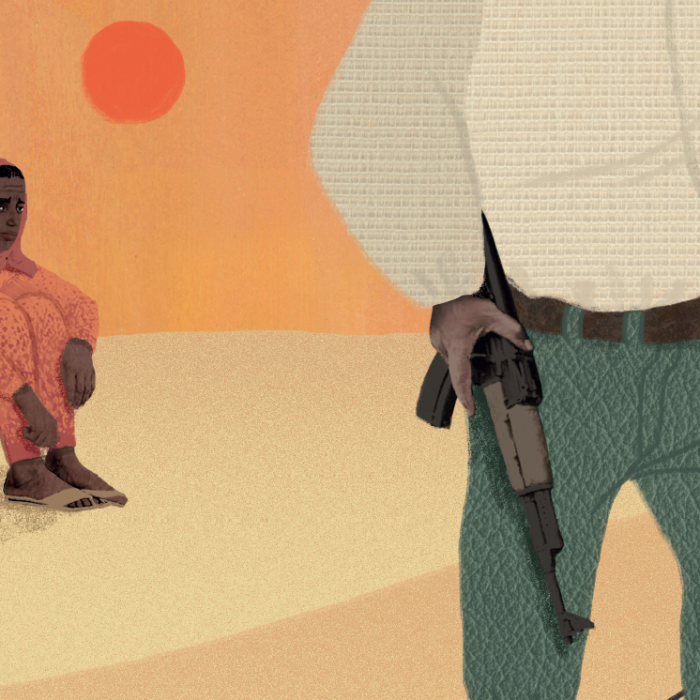“People can mislead you,” says Andemariam. “I talked to a Sudanese guy about my plans— he was working as a driver like me. He advised me to go to Libya, because of the job opportunities there.”
Andemariam is an Eritrean refugee in his early 40s, although he appears to be much older. He is frail and walks in small paces with a distinct tremor. He is not well, and hasn’t been ever since his arrival in Europe nearly a year ago. Europe, a destination he had not intended. A journey he had not planned for. At the time of this interview he was living at a refugee center in Munich, Germany.
Andemariam had been living and working in Sudan for over a decade when he was duped into taking the journey to Libya, where he’d been told there would be better employment opportunities.
“Once we were in the hands of the Libyans, we were imprisoned,” he says. “They beat us every evening to get us to transfer money.”
“We couldn’t take shower. We got skin diseases and our skin was itching,” he says, recounting the conditions of his month long stay in prison.
Listen to Andemariam talk about his experience in Libya and journey at sea.
When Andemariam came to, after having lost consciousness at sea, he found himself in a hospital in Italy where he learned he’d been unconscious for three months.
“I didn’t know if I was alive or dead,” he recalls. “I didn’t know if the people around me were Arabs or Europeans.”
At the hospital he made friends with an Arab speaker who helped him get in touch with his family. After getting better, Andemariam realized, like many refugees, that he couldn’t get a job in Italy. He set out for Germany, after being advised that it would be the best country for getting the medication he needed.
Today, Andemariam still suffers from medical ailments. He has difficulties reading, and gets dizzy spells. “My legs were paralyzed. Even now I cannot walk properly,” he says.
“I can’t read, I can’t recognize telephone numbers,” he adds. “My eyes hurt. I don’t know the reason.”
At the time of this interview Andemariam had been living in Germany for eleven months, where he’d been receiving regular medical treatment. He was still awaiting his asylum decision.



